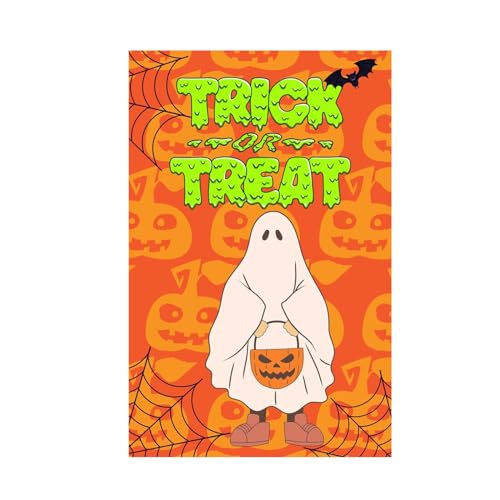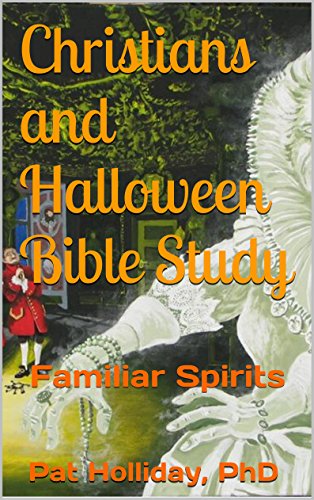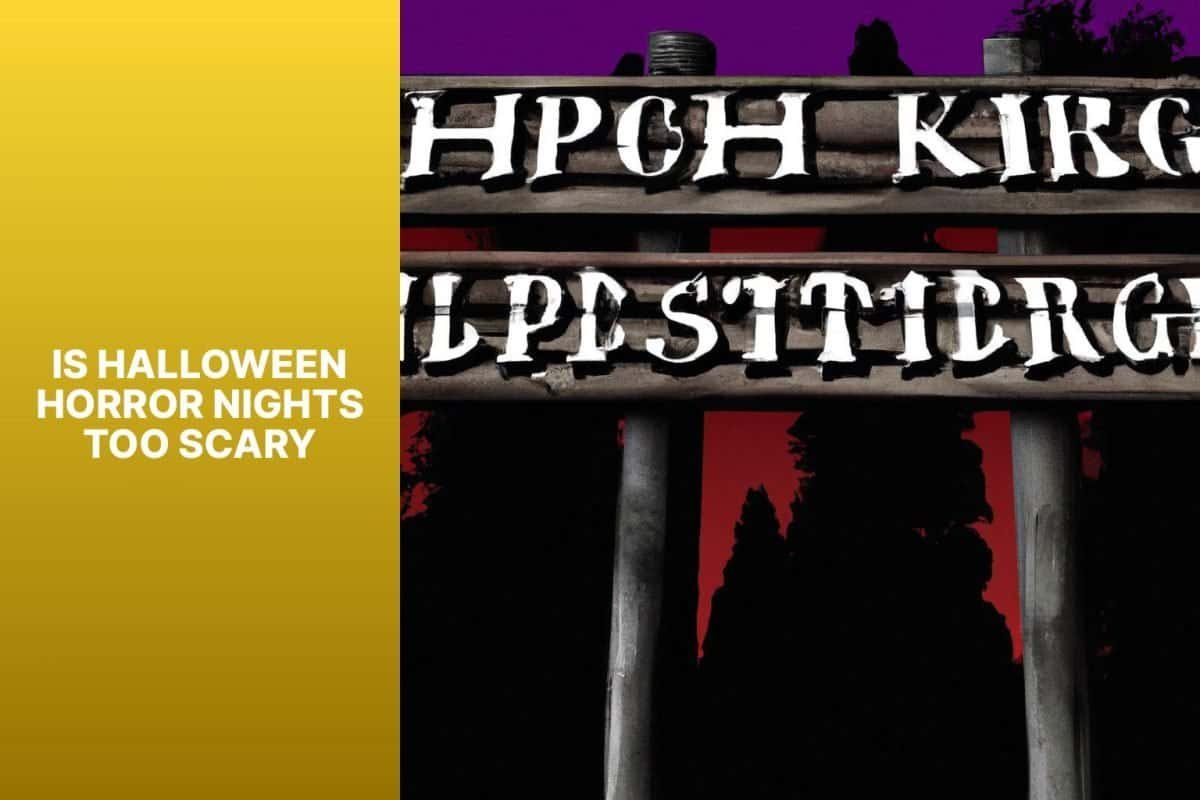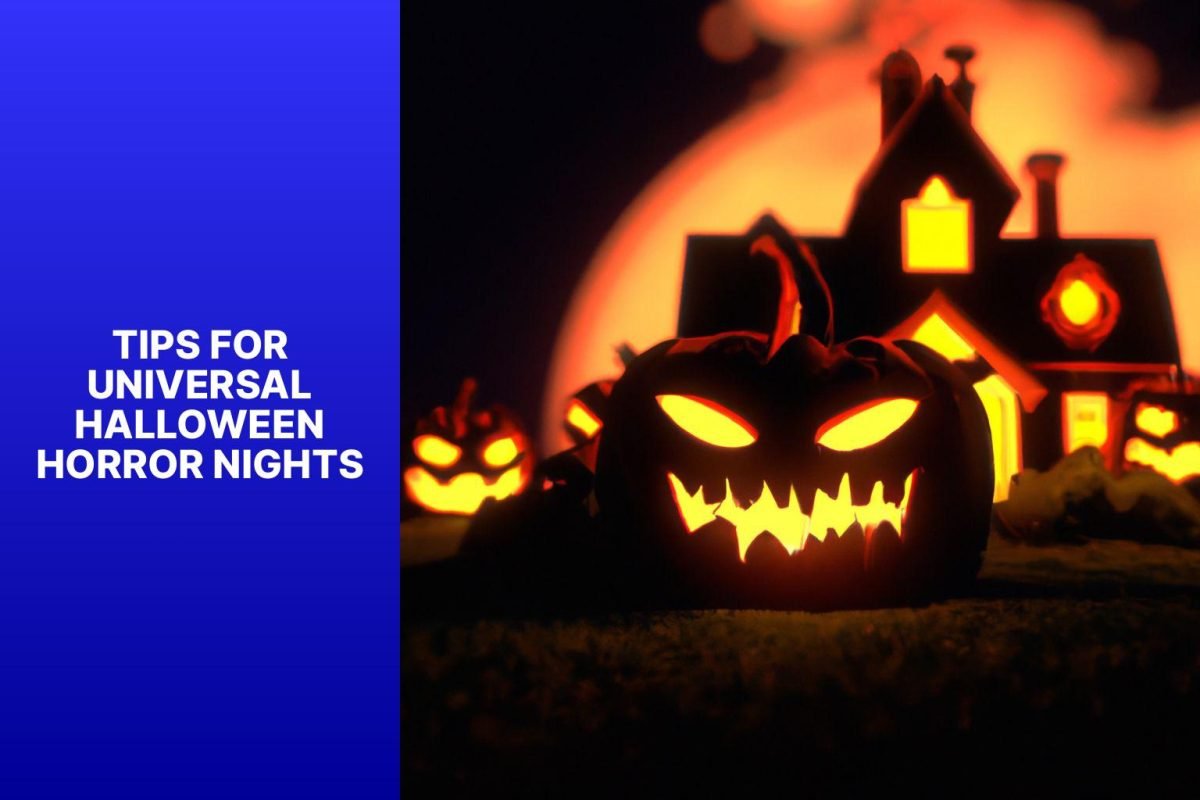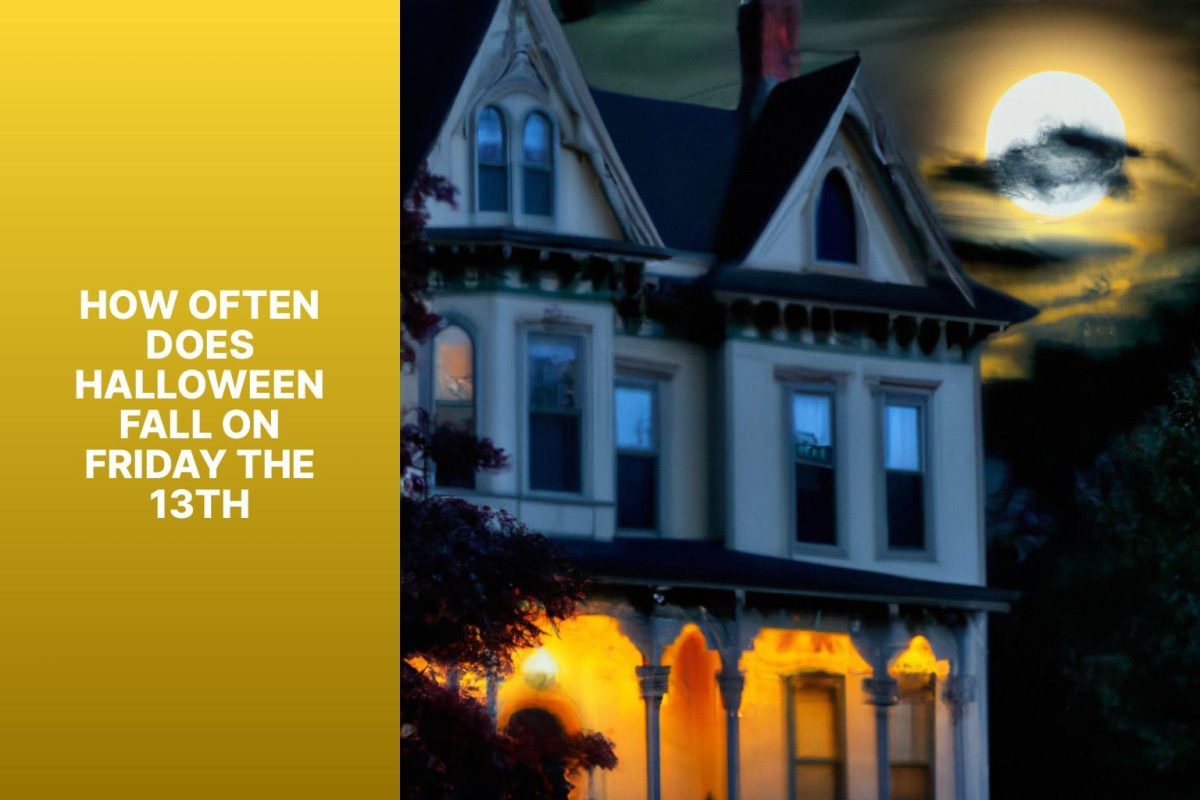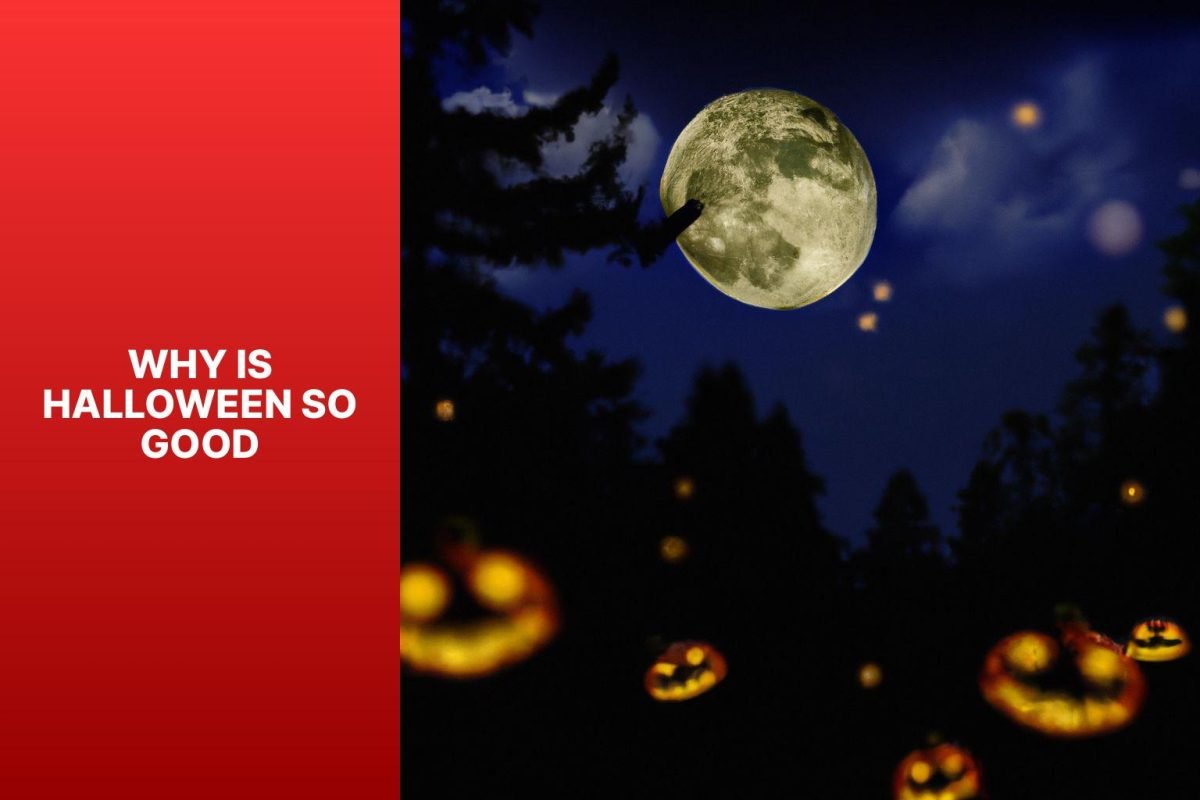Understanding the Bible’s stance on pagan practices is essential to explore the question, “Is Halloween forbidden in the Bible?” While Halloween is not explicitly mentioned in the Bible, an examination of biblical principles and relevant passages can provide insights.
The Bible strongly condemns idolatry and pagan practices throughout its teachings. It emphasizes the worship of the one true God and cautions against involvement with practices such as witchcraft, divination, and other forms of occultism.
To understand the potential connection between Halloween and pagan roots, it is important to explore the historical origins of this holiday. Halloween is believed to have originated from Celtic festivals like Samhain, which marked the end of the harvest season and the beginning of the dark winter months. These festivals often involved superstitions and practices associated with the spiritual realm.
Examining specific Bible passages provides further insight into the subject. Deuteronomy 18:9-14 addresses the prohibition of witchcraft and divination, emphasizing the importance of not engaging in such practices. 1 Corinthians 10:14-22 advises believers to avoid association with pagan practices, highlighting the significance of separating oneself from idolatrous activities.
Interpreting the Bible’s teachings on Halloween requires considering the context of the scripture and applying its principles to contemporary situations. It also involves reflecting on personal convictions and cultural factors that influence individual perspectives.
Common Christian perspectives on Halloween vary. The fundamentalist/conservative view advocates for absolute avoidance of Halloween and its associated practices due to concerns over potential pagan influences. The moderate view promotes discernment and intentional engagement, allowing participation while avoiding elements conflicting with biblical principles. The liberal/inclusive view embraces Halloween as a cultural expression, adapting it to reflect Christian values.
Understanding these various perspectives and examining the biblical teachings on idolatry and pagan practices can help individuals navigate their own beliefs and actions related to Halloween in light of their faith.
Key takeaways:
- Halloween’s origins are rooted in pagan practices, which raises questions about its compatibility with biblical teachings.
- The Bible prohibits witchcraft, divination, and association with pagan practices, suggesting caution and avoidance of Halloween.
- Interpreting the Bible’s teachings on Halloween requires contextualizing scripture, considering personal convictions, and understanding cultural factors.
- Christian perspectives on Halloween range from absolute avoidance to discernment and intentional engagement, or even embracing it as a cultural expression and adaptation.
- Individuals of faith must navigate Halloween by understanding their own beliefs, respecting biblical principles, and considering their personal convictions.
Understanding the Bible’s Stance on Pagan Practices
The Bible offers insight into its position on pagan practices, providing guidance to believers on how to approach and comprehend them. It emphasizes the importance of worshiping and following God alone, while cautioning against involvement in pagan rituals or customs. According to Deuteronomy, the Israelites are explicitly instructed not to imitate the detestable practices of other nations.
To understand the Bible’s stance on pagan practices, it is necessary to study and interpret the scriptures. This involves analyzing the context in which certain practices are mentioned and considering the principles and values upheld by the Bible. Although Halloween is not directly mentioned in the Bible, it does advise against activities associated with idolatry and superstition.
During the early Christian era, the church distanced itself from pagan practices. An example of this is the observance of All Hallows’ Eve, which eventually transformed into Halloween. The church offered an alternative to the pagan festival of Samhain, which was a Celtic tradition. Halloween evolved over time and incorporated various cultural and commercial elements.
Understanding the Bible’s stance on pagan practices enables believers to distinguish between activities that align with their faith and those that may contradict it. By grounding their actions in biblical principles, individuals can make informed choices about how they engage with cultural practices while remaining faithful to their beliefs.
What Does the Bible Say about Idolatry?
The Bible strongly condemns idolatry and warns against worshiping false gods or idols. In various passages, the Bible explicitly states that idolatry is sinful and offensive to God. For example, Exodus 20:3-6 commands, “You shall have no other gods before me. You shall not make for yourself an image in the form of anything in heaven above or on the earth beneath.” This commandment emphasizes worshiping the one true God exclusively.
1 Corinthians 10:14-22 warns against participating in idolatrous practices and encourages believers to separate themselves from anything associated with idol worship. It affirms that Christians cannot partake in communion with both the Lord and idols.
1 John 5:21 instructs believers to “keep yourselves from idols.” This verse emphasizes the need to guard against idolatrous thoughts, desires, or actions.
Exploring the Pagan Roots of Halloween
The origins of Halloween can be traced back to ancient pagan traditions. Exploring the Pagan Roots of Halloween, the festival known as Samhain, celebrated by the ancient Celts, marked the end of the harvest season and the beginning of winter. During this time, the boundary between the living and the dead was believed to be blurred, allowing spirits to roam freely on Earth.
1. Pagan cultures worshiped nature and believed in the supernatural powers of natural elements.
2. The Celts believed that on the eve of Samhain, the spirits of the deceased would return to their former homes. Offerings and sacrifices were made to appease these spirits.
3. Bonfires were lit and costumes were worn to ward off evil spirits.
4. With the spread of Christianity, elements of pagan festivals were incorporated into practices. All Saints’ Day, also known as All Hallows’ Day, was established to honor Christian saints. The evening before, known as All Hallows’ Eve, gradually became Halloween.
It’s important to note that while Halloween has pagan roots, its modern-day celebration varies among different cultures and individuals. Some view it as a harmless cultural event, while others may have religious or personal convictions that shape their approach to the holiday.
Examining Specific Bible Passages Relevant to Halloween
Let’s dive into specific Bible passages that shed light on Halloween, exploring what they reveal about the role of witchcraft, divination, and the danger of getting involved in pagan practices. From Deuteronomy to Corinthians, we’ll unravel the wisdom and warnings found within these verses. So, grab your Bible and join us on this biblical journey as we explore the significance of these passages in relation to Halloween.
Deuteronomy 18:9-14 – Prohibition of Witchcraft and Divination
Deuteronomy 18:9-14 in the Bible explicitly prohibits witchcraft and divination, stressing the significance of steering clear from these practices. The Lord finds anyone who partakes in witchcraft or divination repugnant. The passage specifically cautions the Israelites against adopting the customs of the surrounding nations.
Within the passage, it is expressly forbidden to engage in casting spells, interpreting omens, practicing as a medium or spiritist, or seeking guidance from the deceased. These acts are deemed detestable to God and are strictly forbidden.
As believers, we must exercise discernment, distancing ourselves from any involvement in witchcraft or divination. Instead, we should focus on nurturing a strong relationship with God and depending on His guidance and wisdom.
For Christians, this passage serves as a constant reminder to avoid any association with witchcraft, divination, or other pagan practices. It is our responsibility to uphold the teachings of the Bible and abide by the principles outlined in Deuteronomy 18:9-14. By doing so, we demonstrate our loyalty to God and our dedication to following His commands.
1 Corinthians 10:14-22 – Avoiding Association with Pagan Practices
In 1 Corinthians 10:14-22, the Bible issues a clear warning to believers, urging them to steer clear of engaging in pagan practices. This particular passage emphasizes the paramount importance of differentiating the worship of God from any form of idolatry.
The scripture explicitly states that Christians cannot partake in both the Lord’s table and the table of demons. This serves to highlight the fundamental incompatibility between honoring God and participating in pagan rituals. As faithful followers, believers are strongly advised to avoid any associations with darkness and to purposefully distance themselves from anything that may potentially undermine their faith.
As individuals who place great value in their religious convictions, it is absolutely vital for us to exercise discernment and consciously shun practices that contradict the teachings laid out in the Bible. By remaining steadfast in our devotion and aligning our choices with the unwavering principles outlined in God’s Word, we are able to uphold our faith and remain steadfast in our sacred calling.
Interpreting the Bible’s Teachings on Halloween

Photo Credits: Rickyshalloween.Com by Jordan Sanchez
When it comes to Halloween, there is much debate about its compatibility with the teachings of the Bible. In this section, we will dive into the fascinating world of interpreting the Bible’s perspective on Halloween. Through contextualizing scripture and applying principles, as well as considering personal convictions and cultural factors, we’ll explore how individuals navigate this topic. So, grab a cup of coffee and get ready to unravel the complexities of Halloween in relation to the Bible.
Contextualizing Scripture and Applying Principles
When it comes to contextualizing scripture and applying principles, it’s important to consider the following in relation to Halloween:
- To truly understand the intended meaning, it is crucial to examine the historical and cultural context of biblical passages.
- The Bible teaches key principles such as avoiding idolatry, cultivating spiritual discernment, and prioritizing love for God and neighbor. These principles can serve as a guide when evaluating Halloween practices.
- When assessing Halloween practices, it’s important to take into account idolatry, discerning good from evil, and expressing love for God and others.
- We should also respect the diverse perspectives of believers, who may have different viewpoints influenced by their own convictions and cultural backgrounds.
An example of putting scripture into context and applying principles can be seen in a Christian family’s approach to Halloween. After studying relevant biblical passages and engaging in prayerful reflection, they made the decision to celebrate Halloween by spreading God’s love to their neighbors. They organized a community event that provided a safe and enjoyable environment for children. They used this opportunity to share the gospel and build relationships. By contextualizing scripture and applying principles, they were able to align their faith with the celebration of Halloween.
Considering Personal Convictions and Cultural Factors
Individuals may hold differing beliefs and values regarding Halloween based on considering personal convictions and cultural factors.
Some may view Halloween as conflicting with their personal convictions due to its ties to pagan practices, while others see it as a cultural celebration that can be adapted to align with their faith.
Understanding personal convictions involves introspection and deep understanding of one’s beliefs and values in light of religious teachings.
Cultural factors, such as family traditions, community norms, and societal influences, also shape perspectives on Halloween, considering personal convictions and cultural factors.
It is important to respect and appreciate the diversity of perspectives, taking into account personal convictions and cultural factors.
Some may choose to refrain from Halloween based on personal convictions, while others may engage in festivities that align with their faith and cultural values.
Decisions regarding Halloween should be made by considering personal convictions and cultural factors and respecting the beliefs of others.
Common Christian Perspectives on Halloween
Discover the intriguing perspectives held by Christians when it comes to Halloween. From the fundamentalist viewpoint of absolute avoidance to the moderate approach of discernment and intentional engagement, and even the liberal perspective of cultural expression and adaptation, this section sheds light on the diverse beliefs within Christianity surrounding this holiday. Tap into the pulse of Christian thought and gain insight into how different Christians interpret and approach the spookiest time of the year.
Fundamentalist/Conservative View – Absolute Avoidance
The fundamentalist/conservative view on Halloween calls for absolute avoidance of the holiday due to its perceived pagan origins. Halloween is seen as rooted in pagan practices like witchcraft and divination. Adherents of this view firmly believe that participating in Halloween festivities, such as costumes and trick-or-treating, would compromise their unwavering commitment to biblical principles. They argue that the Bible explicitly condemns idolatry and any association with pagan practices. Supporters of this perspective prioritize maintaining spiritual purity and make a deliberate choice to abstain from any Halloween activities as a testimony to their unwavering faith and convictions. Critics may perceive this view as strict, but those who hold it strongly believe it is crucial to stand against practices they see as contrary to biblical teachings.
Jennifer, a devout Christian with a conservative view, exemplified this fundamentalist/conservative perspective by choosing to completely avoid Halloween. Despite the strong desire of her children to go trick-or-treating, Jennifer explained to them the biblical principles behind their decision. Instead, they organized a fun alternative event at their church, featuring games, costume contests, and a focus on biblical heroes. Jennifer’s story serves as an example of the utmost conviction and unwavering commitment to faith demonstrated by those who adhere to the fundamentalist/conservative view.
Moderate View – Discernment and Intentional Engagement
The moderate view on Halloween among Christians emphasizes discernment and intentional engagement. Here are some key points to consider:
1. Examine the origins and practices of Halloween with discernment, understanding the historical and cultural context.
2. Recognize that Halloween has both pagan and Christian influences, and make intentional choices about which elements to participate in or avoid.
3. Focus on the spiritual aspect of Halloween, using it as an opportunity to reflect on themes of light overcoming darkness and the victory of good over evil.
4. Engage with Halloween in a way that aligns with personal convictions and values, considering the impact on oneself and others.
5. Participate in activities that promote community, kindness, and love, such as supporting local events or using Halloween as an opportunity to connect with neighbors.
6. Avoid engaging in or promoting practices that conflict with biblical teachings, such as occultism, witchcraft, or glorification of evil.
In a similar tone, it is important to note that the history of Halloween can be traced back to ancient Celtic festivals, such as Samhain, which marked the end of summer and the beginning of winter. Over time, the holiday evolved and incorporated various cultural and religious elements, including Christian traditions. Today, Halloween is a blend of customs and beliefs from different time periods and cultures, making it a complex and diverse celebration.
Liberal/Inclusive View – Cultural Expression and Adaptation
The liberal/inclusive view on Halloween values cultural expression and adaptation. It recognizes that Halloween has changed over time and is not solely based on pagan practices. This viewpoint encourages believers to embrace the cultural aspects of Halloween while staying true to their faith.
Supporters of this view believe that participating in Halloween traditions allows Christians to connect with their communities and share their faith in a relevant way. They see Halloween as an opportunity to show God’s love and acceptance, rather than just a pagan holiday.
Engaging in Halloween activities allows individuals to express their cultural identities, strengthen community unity, and build relationships with non-believers. This view acknowledges that cultural expression can coexist with a strong faith foundation.
While those who hold this view enjoy Halloween, they also stress the importance of discernment. They encourage believers to approach Halloween with a critical mindset, carefully considering the practices and customs involved. Personal convictions and cultural factors should be taken into account when deciding how to participate in Halloween.
Frequently Asked Questions
Is Halloween forbidden in the Bible?
According to the Bible, there is no direct reference to Halloween. Some Christians believe that participating in Halloween is a form of involvement in evil and darkness, while others consider it harmless fun. Ultimately, Christians must decide for themselves whether or not to celebrate Halloween.
What is the origin of Halloween?
Halloween originated from the ancient Celtic festival of Samhain, which marked the end of summer and the beginning of the season of darkness. It involved lighting bonfires and making sacrifices, and it was believed that the gates between the natural world and the spirit world would open at this time. The Catholic Church later moved All Saints Day to November 1, which became known as “All Hallows Eve.”
Are there specific Bible verses that mention Halloween?
The Bible does not specifically mention Halloween. There are verses that speak out against practices associated with Halloween, such as sorcery and witchcraft. Christians who choose not to celebrate Halloween often cite these verses that condemn pagan practices.
Can Christians celebrate Halloween in a godly manner?
Yes, Christians can choose to celebrate Halloween in a godly manner. They can avoid participating in the darker aspects of Halloween and ensure that their attitude, dress, and behavior reflect a redeemed life. Some churches even hold alternative events like “harvest festivals” or light parties to provide a godly environment for celebrating.
How can Christians share the Gospel during Halloween?
Some Christians choose to hand out tracts that share the Gospel along with Halloween candy. This provides an opportunity to spread the message of Christ’s love and salvation while participating in Halloween. It is important for Christians to find creative ways to share the gospel with their community during this season.
Should celebrating Halloween cause division among Christians?
No, the decision to celebrate Halloween or not should not cause division among Christians. It is a matter of personal conviction and should be respected. Christians should refrain from judging others’ choices and instead focus on loving one another and honoring God in all things.








